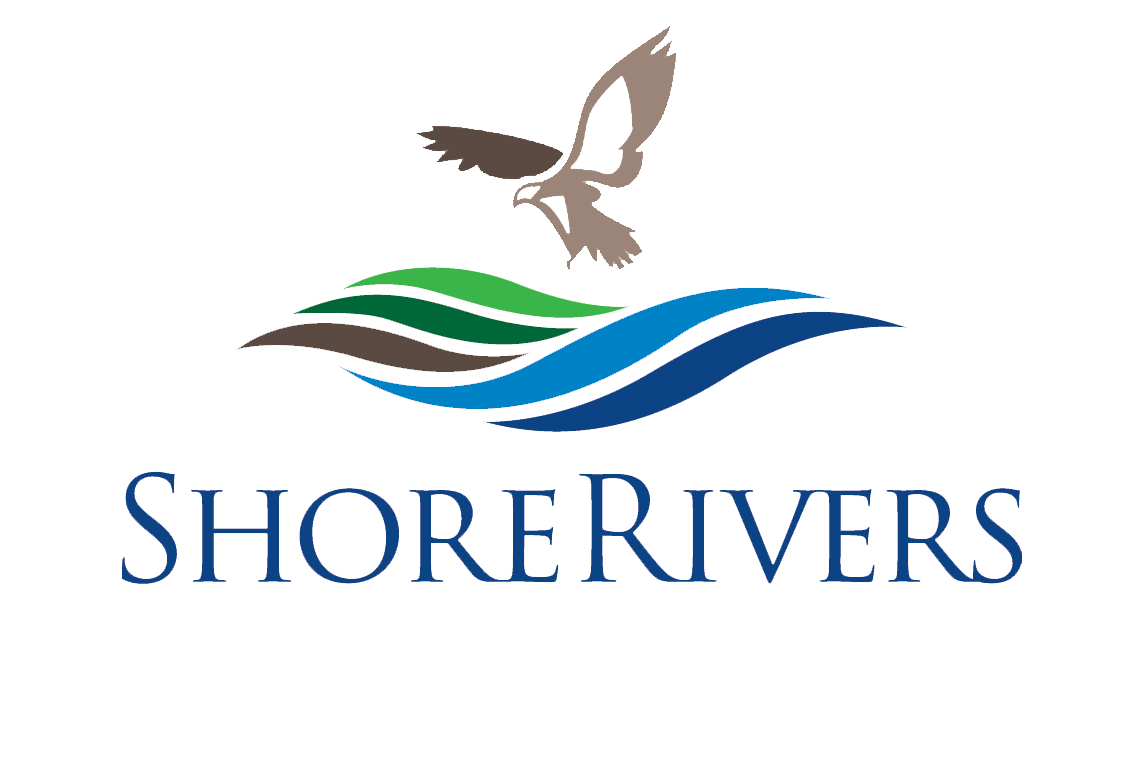In March, ShoreRivers and the owners and operators of The Point at Pintail came to a settlement agreement requiring the sporting clay course and shooting range in Queenstown, Maryland, to address lead shot that has accumulated to toxic levels in surrounding soils, threatening the health of people and wildlife. While shooting has taken place at this gun club for over 30 years, evidence shows that between 2013 and 2019 alone, 171 tons of lead were discharged at shooting stations around the site, resulting in dangerous lead accumulation in the soil, ditches, and ponds that drain directly to the Wye River. After years of negotiations, the final settlement agreement requires The Point at Pintail to address existing lead deposits, implement practices to regularly reclaim future lead debris, and conduct regular water and soil sampling to ensure no further lead pollution of the site.
Map of The Point at Pintail showing locations of shoot stations. Map courtesy of SCS Engineers.
Lead is highly toxic; exposure to even small amounts can result in severe neurological, developmental, and reproductive issues in humans and wildlife, particularly in children and birds. For these reasons, it has been banned from use as a gasoline additive, in paints, and in certain other applications. However, while lead-based shot was banned in waterfowl hunting nationwide in 1991, it remains in use in upland game hunting and in trap and skeet shooting sports. At shooting ranges specifically, spent lead shot can accumulate to toxic levels in soil and water unless proper reclamation protocols are in place.
According to Michael McLaughlin, the hazardous waste expert who evaluated the samples taken in 2020 from The Point at Pintail, “. . . the concentrations of lead found at several areas of the gun club present a threat to human health. Those potentially at risk include gun club visitors and staff who can ingest or inhale lead dust.” Additionally, “. . . the ecological risk presented by the lead contamination in soil and sediment at the gun club is substantial.”
The Point at Pintail sits directly on the banks of the main stem of the Wye River just south of Queenstown. In 2015, ShoreRivers entered into informal discussions with the owners about partnering to remediate the lead pollution on site. ShoreRivers also alerted the Maryland Department of the Environment (MDE) and the Queen Anne’s County Health Department. In 2017, after two years of inaction by The Point at Pintail, MDE, and the health department, ShoreRivers filed a Notice of Intent to Sue, and ultimately filed a lawsuit, under the Clean Water Act and under the Resource Recovery and Conservation Act, alleging that The Point at Pintail had failed to protect human and environmental health from lead poisoning as required by law.
The settlement is still undergoing federal agency review, but under the settlement agreement reached in March, The Point at Pintail is required to reclaim or treat with a bonding agent the legacy lead in specific, high-concentration areas; close or re-orient existing shooting stations to prevent lead debris from being deposited in wetlands or ditches; conduct lead reclamation on a regular schedule based on the number of targets thrown to prevent further accumulation; and conduct soil and water sampling at least annually to monitor lead levels and share results with ShoreRivers and MDE to ensure actions are meeting environmental standards.
Isabel Hardesty, executive director of ShoreRivers, states, “We are pleased with the outcome of this settlement and believe these actions will improve water quality while also reducing potential human health risks. Many hunters and sport shooters are conservation-minded, and I urge these communities to look at this as an opportunity for improvement. Can we do more to protect against the damages of lead shot, or further curtail its use by switching to steel or other non-toxic alternatives, in order to protect our shared environment? ShoreRivers welcomes the opportunity to work with the sport shooting community in these endeavors.”
ShoreRivers sincerely thanks the following people and companies for their donated time and expertise in this case: attorneys Kevin Holewinski and Daniella Einik with Jones Day; environmental engineer and lead expert Michael McLaughlin with SCS Engineers; and lead expert Sarah Stoneking with Ramboll US Consulting, Inc. Their significant contributions made this positive outcome possible.

